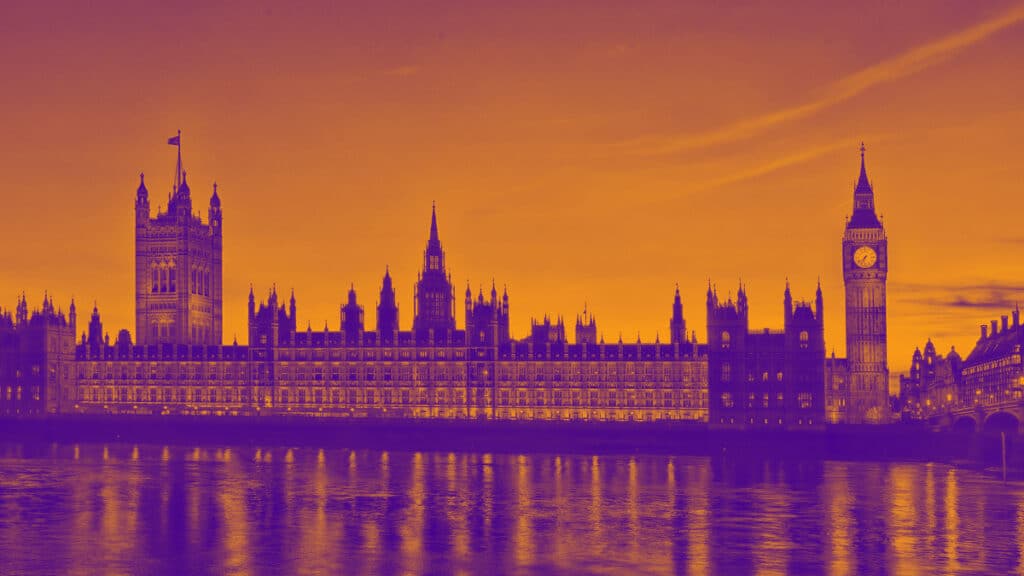Tightening Restrictions on Deepfake Porn: What US Lawmakers Could Learn from the UK
Kaylee Williams / Jul 25, 2023Kaylee Williams is a Ph.D. student of communications at the Columbia Journalism School.

On June 27, the UK Parliament tabled amendments to the proposed Online Safety Bill which will expand the government’s power to prosecute people for sharing nonconsensual pornographic deepfakes (NPDs), as well as “revenge porn” and other forms of image-based sexual abuse.
These changes will put the UK leagues ahead of the US government—which still has no federal legal protections for victims whose images are used without their consent to generate sexually explicit materials with artificial intelligence.
Expected to pass later this year, the new amendments to the Online Safety Bill will “remove the requirement for prosecutors to prove perpetrators intended to cause distress to secure a conviction,” according to the BBC.
The bill will also make sharing nonconsensual, sexually explicit material punishable by up to six months in prison. If the perpetrator is proven to have acted with intent to harm or humiliate the victim, the maximum sentence is raised to 2 years. Additionally, those convicted of the crime will be listed on a register of sex offenders.
Dr. Mary Anne Franks, George Washington Law School professor and president of the Cyber Civil Rights Initiative, described the new amendments to the bill as “far more sophisticated and comprehensive than the vast majority of US laws on image-based abuse.”
In the US, only a handful of states have enacted laws which prohibit the sharing of deepfake pornography in any capacity, and only some of which actually criminalize the act.
In California, for example, victims can seek monetary damages in civil court if they find that their likeness has been digitally inserted into sexually explicit material without their consent, but the actual act of distributing NPDs is not considered a criminal offense, and is therefore not punishable with jail time.
In contrast, a 2019 law passed in the Commonwealth of Virginia defines the sharing of NPDs online to be a Class 1 misdemeanor, punishable by up to one year in jail. However, the Virginia law only prohibits the sharing of NPDs in cases where the prosecution can prove that their distribution was intended to “coerce, harass, or intimidate” the person depicted, making the law incredibly difficult to apply.
And as far as the rest of the country goes, women (and research has shown that victims of this particular kind of image-based sexual abuse are nearly always women) have even less protection against those who wish to use their images to generate pornographic material against their will.
“It is frankly shameful that Congress has not yet passed federal criminal legislation prohibiting nonconsensual pornography, to say nothing of deepfakes, and that US lawmakers continue to debate whether intent to cause distress should be an element of the offense even as victims, advocates, and experts have exhaustively demonstrated that it should not,” Franks said.
Just two days before the amendments to the UK bill were announced, prominent internet researcher and former Executive Director of the DHS’s Disinformation Governance Board Nina Jankowicz published a column in The Atlantic about her experience being targeted by online harassers who used AI tools to fabricate sexually explicit videos of her.
“The only emotion I felt as I informed my lawyers about the latest violation of my privacy was a profound disappointment in the technology—and in the lawmakers and regulators who have offered no justice to people who appear in porn clips without their consent,” Jankowicz wrote.
The new additions to the Online Safety Bill give potential victims across the UK far greater leeway to seek criminal charges against their abusers than any law currently in place in the United States.
As such, US lawmakers would do well to note the features which currently make this component of the Online Safety Bill worth emulating:
- By not requiring that prosecutors prove “intent” to distress, humiliate, or otherwise harm the victim, the law leaves no room for perpetrators to claim that they simply created the pornographic material out of admiration or affection for the subject, a defense which legal scholars have warned against.
- By making the distribution of NPDs punishable by jail time and a place on the sex offender register, the law establishes the act as a serious criminal offense (as opposed to a mere interpersonal dispute), and acts as a deterrent to future offenders.
It is pertinent to note, however, that a handful of legal questions remain unanswered with regard to the bill. The most obvious, Dr. Franks pointed out, is the question of how “deepfakes” will be defined under the law.
Field experts predict that recent advancements in AI technology and publicly-available AI-powered tools may contribute to a rapid proliferation and popularization of pornographic forgeries in the future. As a result, lawmakers will need to develop technically-informed definitions which won’t become obsolete in just a few years, or be too narrowly tailored to be applied.
And finally, Dr. Franks said, “Much depends on how the law will be publicized and enforced. Perpetrators can't be deterred by a law they don't know about, and victims can't have meaningful recourse if law enforcement isn't properly trained to investigate and prosecute these crimes with respect and professionalism.”
Authors
